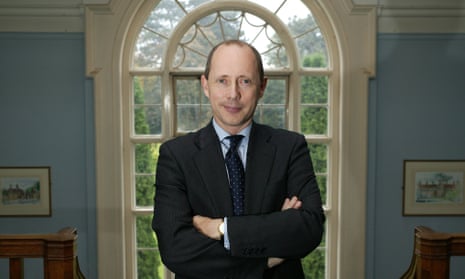The Conservatives and Labour need to “grow up” and end an irresponsible refusal to talk about solving England’s social care crisis before the next election, the architect of seminal care reforms has warned.
In a despairing rebuke to both major parties, Sir Andrew Dilnot, whose government-backed commission proposed a cap on social care costs more than a decade ago, said that there was “no serious addressing” of the state of the care system by Labour or the Conservatives heading into an election campaign.
“There’s absolutely no doubt that whoever the government is, we’re going to need to spend quite a lot more on both healthcare and social care,” he told the Observer. “It’s simply irresponsible not to have that conversation. At some level, we’re having a little conversation about health, but we’re not having the conversation, as far as I can see, at all about social care.
“There’s no discussion of the overall level of funding that is needed for social care, no serious addressing of the desperate state that the existing means-testing system is in. To go forward to a general election without that being a significant part of our national discussion just seems irresponsible on all sides.”
Social care providers, councils and experts are all worried about a conspiracy of silence among political parties over addressing social care in any detail in their election manifestos. The government reneged on Boris Johnson’s pledge outside Downing Street after he became prime minister in July 2019 to “fix the crisis in social care”.
A plan to cap social care costs was delayed by Jeremy Hunt, the chancellor, until October 2025. Meanwhile, the Observer has been told that Labour plans only limited reforms during its first term in office.
The crisis in care places, staffing and funding has meant that ministers have been regularly forced to hand councils short-term funding to keep the system from collapse. Michael Gove, the secretary for levelling up, housing and communities, announced £500m in emergency funding last month.
However, politicians are wary of the political risks from broader reforms. Theresa May’s plans to ask people to pay more for their social care costs were blamed for the collapse in her poll lead before the 2017 election.
Speaking separately on a forthcoming podcast by NHS Providers, which represents health trusts, Dilnot said that all parties were guilty of an immature refusal to engage in a crisis that was now affecting the NHS. “Grow up. Don’t pretend it’s not going on,” he said. “Don’t behave as though this massive issue that faces all of us as we grow old is not there. Be honest. Once you face up to it then you’re going to recognise that action is needed by government.
“We have people stuck in hospital facilities which are less well designed for them and more expensive than care but without there being any care available. We don’t need very many delayed transfers to have a really big impact on the capacity of hospitals to do their work properly. Unless we make it more visible we’re not going to get much done. We have to see reform. It has got to the point where marginal change is not going to help.”
Legislation for a cap in social care costs is already on the statute books, but it has never been enacted and extra funding would be needed. A levy to raise money for health and social care was cancelled by Kwasi Kwarteng when he was chancellor.
Sir Julian Hartley, chief executive of NHS Providers, said the consequences of inaction over social care were now “plain to see” within the health service. “For too long, successive governments have dodged difficult decisions about social care. Social care needs serious political attention, meaningful reform and long-term, sustainable funding to address huge amounts of unmet and undermet need, quality of care and chronic workforce shortages.
“Inadequate funding for social care has a huge effect on people’s health and wellbeing and on the NHS which works very closely with severely overstretched social care services. With a general election fast approaching, it’s vital that all politicians take social care seriously.”
Recommendations from the 2011 Dilnot report
A cap of £35,000 on lifetime individual liability for care costs.
Food and accommodation costs not capped, but liability limited to £10,000 a year.
Assets threshold for cut-off of state support raised from £23,250 to £100,000.
New national eligibility criteria for state support, set no higher than current definition of “substantial” needs.
Free care for life for all disabled children and anyone developing eligible care needs by the age of 40.
